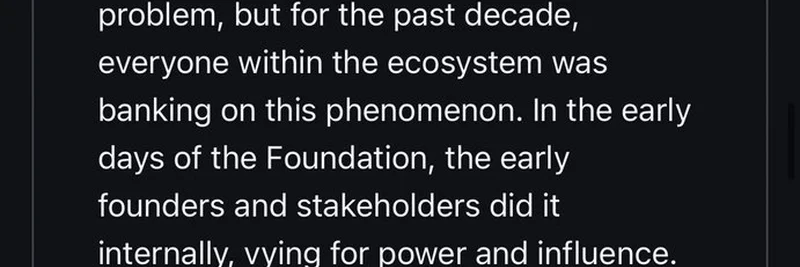In the ever-evolving world of cryptocurrency, debates about privacy, decentralization, and true cypherpunk roots never seem to fade. Recently, a tweet from crypto influencer Ansem (@blknoiz06) sparked a lively discussion by hailing Zcash as a "revenge" against corrupt governments, surveillance states, banksters, venture capital slop, and even Bitcoin itself for straying from its cypherpunk origins. Ansem urged to "run it to zillions with haste," positioning Zcash as a defiant force in the space.
But not everyone agrees. Riccardo Spagni, better known as @fluffypony and a prominent figure in the Monero community, fired back with a detailed critique. In his response, Spagni argues that Zcash is far from a rebel—it's actually a VC and hedge fund-backed coin that's centralized and overly compliant, essentially embracing the very systems it's supposed to challenge.
Spagni draws directly from the Cypherpunk Manifesto by Eric Hughes to make his case. For those unfamiliar, the manifesto is a foundational text from 1993 that outlines the importance of privacy through cryptography in an open society. It's all about using tech to protect personal freedoms from prying eyes, whether from governments or corporations.
He quotes: "Since we desire privacy, we must ensure that each party to a transaction have knowledge only of that which is directly necessary for that transaction. Since any information can be spoken of, we must ensure that we reveal as little as possible."
Spagni points out that Zcash falls short here. While it offers shielded transactions for privacy, transparent and traceable ones are the default. Terms like "Z-address" and "T-address" can confuse users, leading many to assume they're private when they're not. This setup, he says, betrays the majority who might not dive deep into the tech.
Another key quote: "Therefore, privacy in an open society requires anonymous transaction systems. Until now, cash has been the primary such system. An anonymous transaction system is not a secret transaction system. An anonymous system empowers individuals to reveal their identity when desired and only when desired; this is the essence of privacy."
According to Spagni, Zcash's unshielded transactions force revelation, especially when dealing with exchanges that require transparency. This isn't selective disclosure—it's mandated exposure, which counterparties shouldn't have the power to demand.
Finally, he highlights: "Cypherpunks deplore regulations on cryptography, for encryption is fundamentally a private act. The act of encryption, in fact, removes information from the public realm. Even laws against cryptography reach only so far as a nation's border and the arm of its violence. Cryptography will ineluctably spread over the whole globe, and with it the anonymous transactions systems that it makes possible."
Spagni questions Zcash's eagerness to comply with regulations and exchanges, asking if true cypherpunks would invent ways to compromise their privacy tech. It's a stark contrast to projects like Monero, which prioritize mandatory privacy by design.
The thread didn't stop there. Replies poured in, with some agreeing emphatically—"Amen" from @cryptonator1337—and others adding their takes. One user, @BeerdHead, responded with a GIF, perhaps capturing the dismissive vibe in the air.
Spagni followed up by quoting Satoshi Nakamoto: "If you don't believe me or don't get it, I don't have time to try to convince you, sorry." It's a classic mic-drop moment in crypto discussions.
He also warned that even if Zcash aims for decentralization down the line, it could end up like Ethereum—centralized in practice. Linking to a write-up by Peter on Ethereum's centralization, Spagni shared highlights showing how control paradigms can shift over time.
This exchange highlights a bigger tension in crypto: the pull between innovation, privacy, and regulatory pressures. For meme token enthusiasts, it's a reminder that hype can sometimes gloss over fundamentals. Zcash, often memed as part of a "supercycle," raises questions about what makes a coin truly rebellious in a space flooded with VC influence.
As blockchain practitioners, understanding these critiques helps us navigate the noise. Whether you're team Zcash or siding with Spagni's view, the debate underscores the need for projects that stay true to cypherpunk ideals without compromising for compliance. In the end, it's about building tools that empower users, not entrench the status quo.



